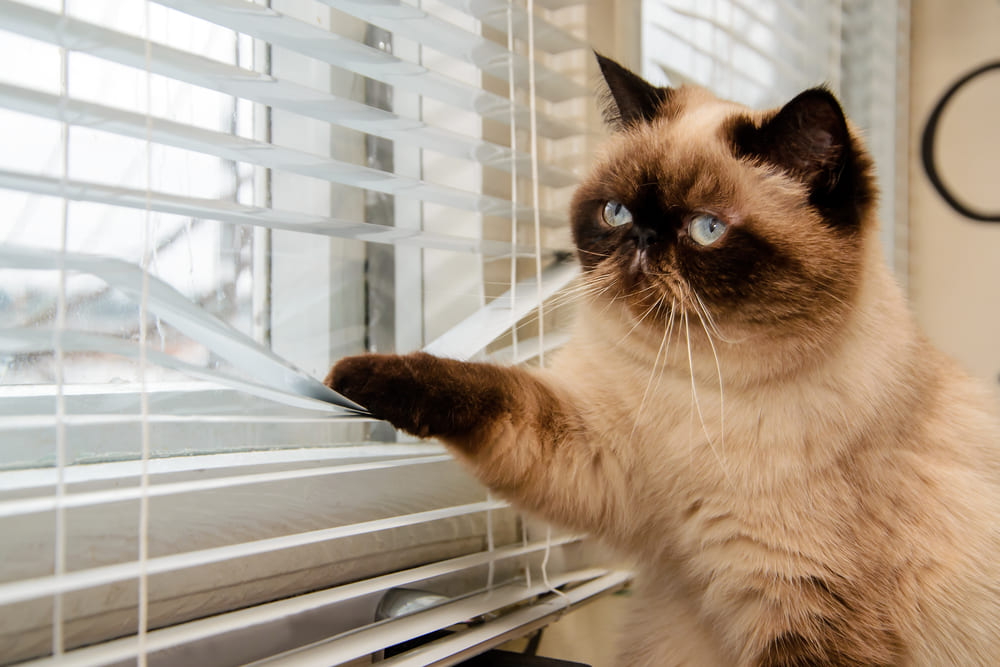During the COVID-19 pandemic, we were home with our critters all day, every day. Many cats loved the extra companionship and attention. Now that we find ourselves doing less work from home and are away more frequently, our cats have noticed the change and some are having trouble adjusting. Separation anxiety is more commonly associated with dogs but cats may show signs of the issue as well. Female cats, cats that live strictly indoors, cats that live alone with no other pet companions, or cats that experience a chaotic home environment are more likely to experience true separation anxiety. It is a good idea to familiarize yourself with the signs of separation anxiety in cats as we once again start leaving the home more often.

Constant Grooming
If every time you look over at your cat she’s licking herself, this could be a sign of separation anxiety (especially in female cats). Check your cat’s coat carefully for bald spots, these spots are where she’s licked her fur out from so much grooming. Your cat might be doing this because she is feeling vulnerable and stressed.
A Change in Urination
Is your good kitty all of a sudden breaking the rules and peeing outside of the box? Maybe even in your bed? Resist the urge to scold them, they may be missing you. Of course, bring them by Longwood to rule out any physical cause first. But once you’ve ruled out physical causes the actual cause of your pet’s disturbing behavior may anxiety-driven. When cleaning the urine, be sure to use a cleaner like Nature’s Miracle which contains enzymes that will destroy the odor and make cats less likely to urinate in that area in the future.
Chaos, Pure Chaos
If your cat (especially if he’s a boy) becomes destructive he might be feeling anxious. Excessive vocalization when you’re home is also a sign that your boy wants you around more. Another way cats act out when feeling stressed is by pacing or attempting to escape. These cats are acting out to get your attention because they’ve gone hours without it.
We’ll Get Back to Normal, Our Cats Will Too
You’ve been home for a long time, it may take a while for your cat to adjust to your new schedule. If there’s one product we recommend trying to help calm your cat, it’s Feliway. It contains a pheromone that is calming to cats and comes as a diffuser or spray. Remember, to stay calm even if your cat’s separation anxiety frustrates you. Environmental enrichment, behavior modification techniques and sometimes pharmacological intervention is necessary to help your cat deal with separation anxiety or any other types of anxiety your pet may be experiencing. If you are concerned your cat is suffering from separation anxiety, or any other type of anxiety, be sure to schedule an appointment with us at Longwood Vet Center.
